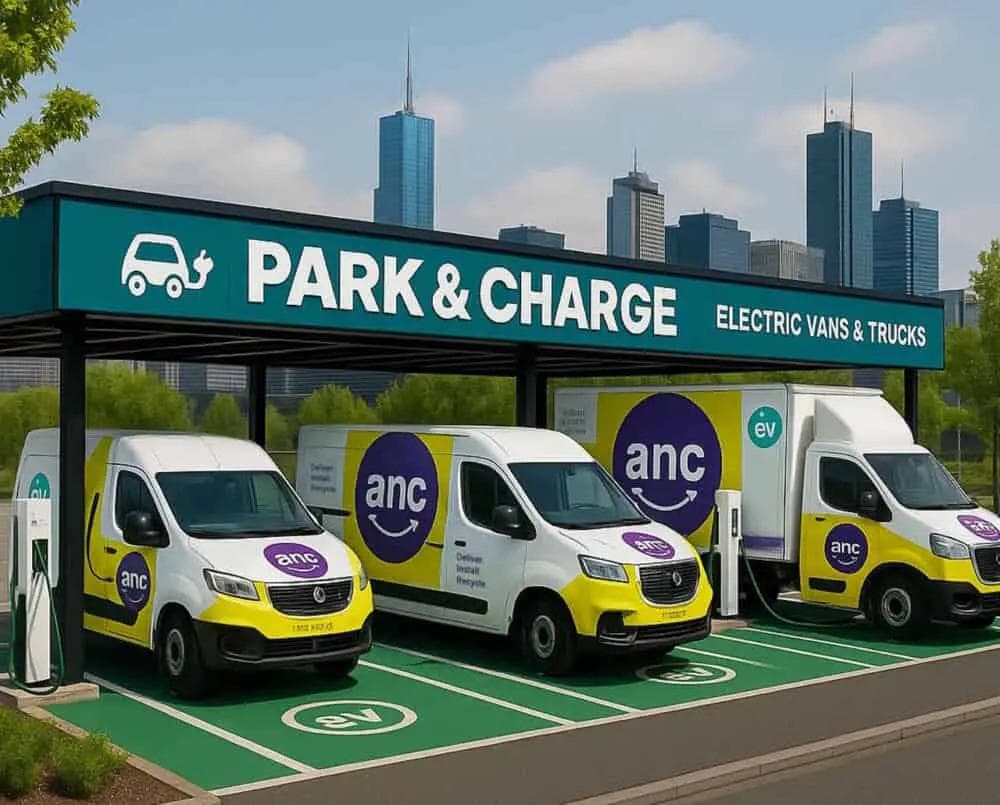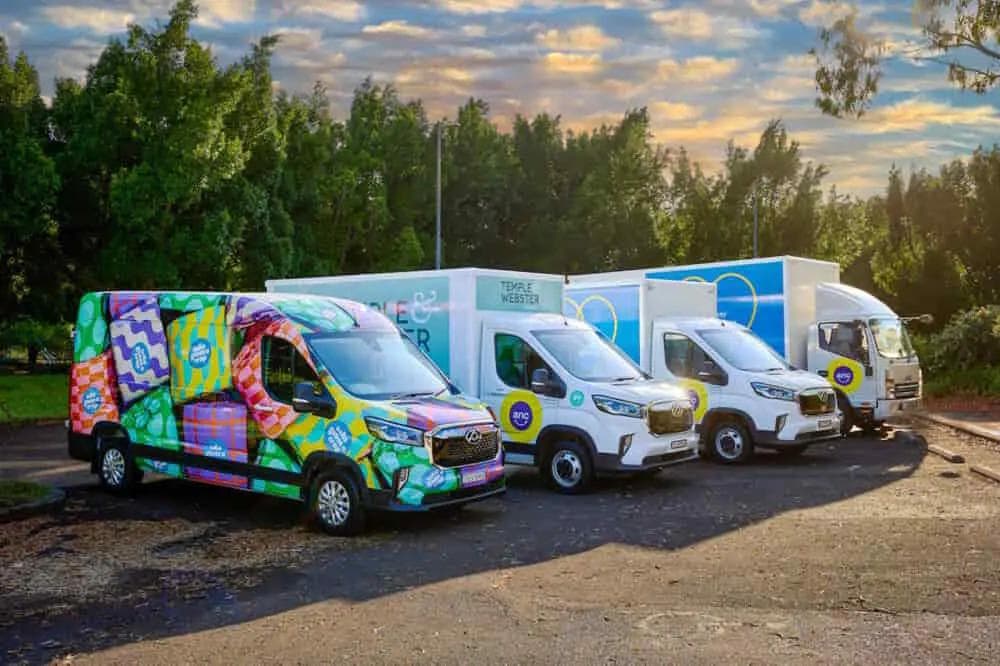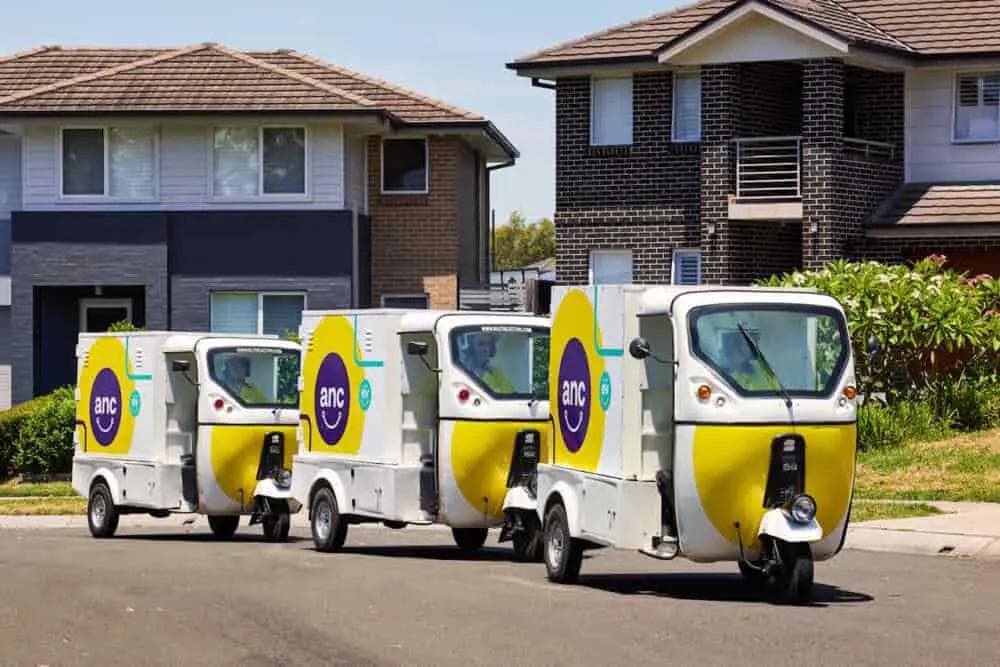
Key Points
- Ahead of schedule – ANC is on track to exceed its 2026 EV targets by late 2025.
- 111 BEVs in operation – battery electrics now make up 12.5% of ANC’s national fleet.
- Significant emissions savings – over 622,000kg of CO₂ avoided through EV deliveries.
- Diverse EV mix – from LDV vans to electric tuk-tuks, tailored for last-mile logistics.
- Strong partnerships – major retailers like Ikea are leveraging ANC’s EV rollout to meet their sustainability goals.
Australian last-mile delivery company ANC has expanded its electric fleet to more than 100 vehicles, outpacing the goals set under its $12.8 million Project Spark program. The milestone comes nearly two years ahead of schedule, marking a significant step toward decarbonising the logistics sector.
▶️MORE: These Are Australia’s Best-Selling EVs in First 6 Months of 2025
Early adoption leads to rapid scale-up
ANC began its EV journey in 2022, when the first contracted drivers switched from diesel to battery-electric vans and trucks. Momentum grew in mid-2024 with the launch of Project Spark, supported by the Australian Renewable Energy Agency (ARENA).
The initiative originally set a goal of 112 EVs by 2026. By September 2025, ANC is already operating 111 battery-electric vehicles nationwide, almost meeting the 2026 target 18 months early. Another 50 EVs are planned for the next 12 months, lifting the fleet well beyond initial projections.
Battery EVs now make up 12.5 per cent of ANC’s nationwide fleet. The company plans to increase that share to 30 per cent by 2028.
▶️MORE: Electric Utes Available: What's Available, …

Deliveries, emissions and driver benefits
The growing fleet has already made a measurable impact. More than 340,000 consignments have been delivered using EVs, covering 1.39 million kilometres—equal to circling the Earth 34 times. This shift has prevented over 622,000 kilograms of CO₂ emissions. Currently, 8.2 per cent of all ANC deliveries are made by EVs.
ANC CEO Joe Sofra said the transition has benefited both the environment and its network of independent drivers. “With the right support: education, grants and strategy, you can cut emissions and boost income. Many drivers lack the capital to scale alone, so this provides a clear, supported path to grow,” he said.
The company is also piloting a mixed charging approach, including depot-based charging, public fast chargers, and portable DC units. Plans are underway to develop “park ‘n charge” hubs that combine secure parking, high-speed charging, and driver rest facilities.
▶️MORE: Top commercial EVs coming to Australia - Zecar

EV fleet composition
ANC has adopted a range of EV types suited to different last-mile tasks, from vans to small trucks and compact delivery vehicles.
| Vehicle Type | Models in ANC Fleet | Role in Fleet Use Case |
| Large vans | LDV eDeliver 9 (cab-chassis, LWB High Roof) | Bulky and high-volume deliveries |
| Medium trucks | JAC N90 | Heavy-duty last-mile freight |
| Compact delivery vehicles | BILITI electric tuk-tuks | Urban and high-density deliveries |
| Additional EV mix | Other contracted BEVs | Flexible fleet integration |
▶️MORE: Future EVs: Every New Electric Car Coming …

Partnerships driving progress
Retail giants including Ikea, JB Hi-Fi and Bunnings rely on ANC for last-mile deliveries. Several have embraced ANC’s EV rollout as part of their own environmental, social and governance (ESG) commitments.
Ikea has moved quickly on its zero-emissions delivery pledge. “In Australia, over the past three years we’ve grown from five per cent to 76 per cent of customer deliveries made via zero-emissions vehicles,” said Alexandra Kelly, Ikea’s zero emissions project leader. “Partnering with organisations like ANC Delivers has been essential to reaching that target.”
Stay up to date with the latest EV news
- Get the latest news and update
- New EV model releases
- Get money savings-deal
